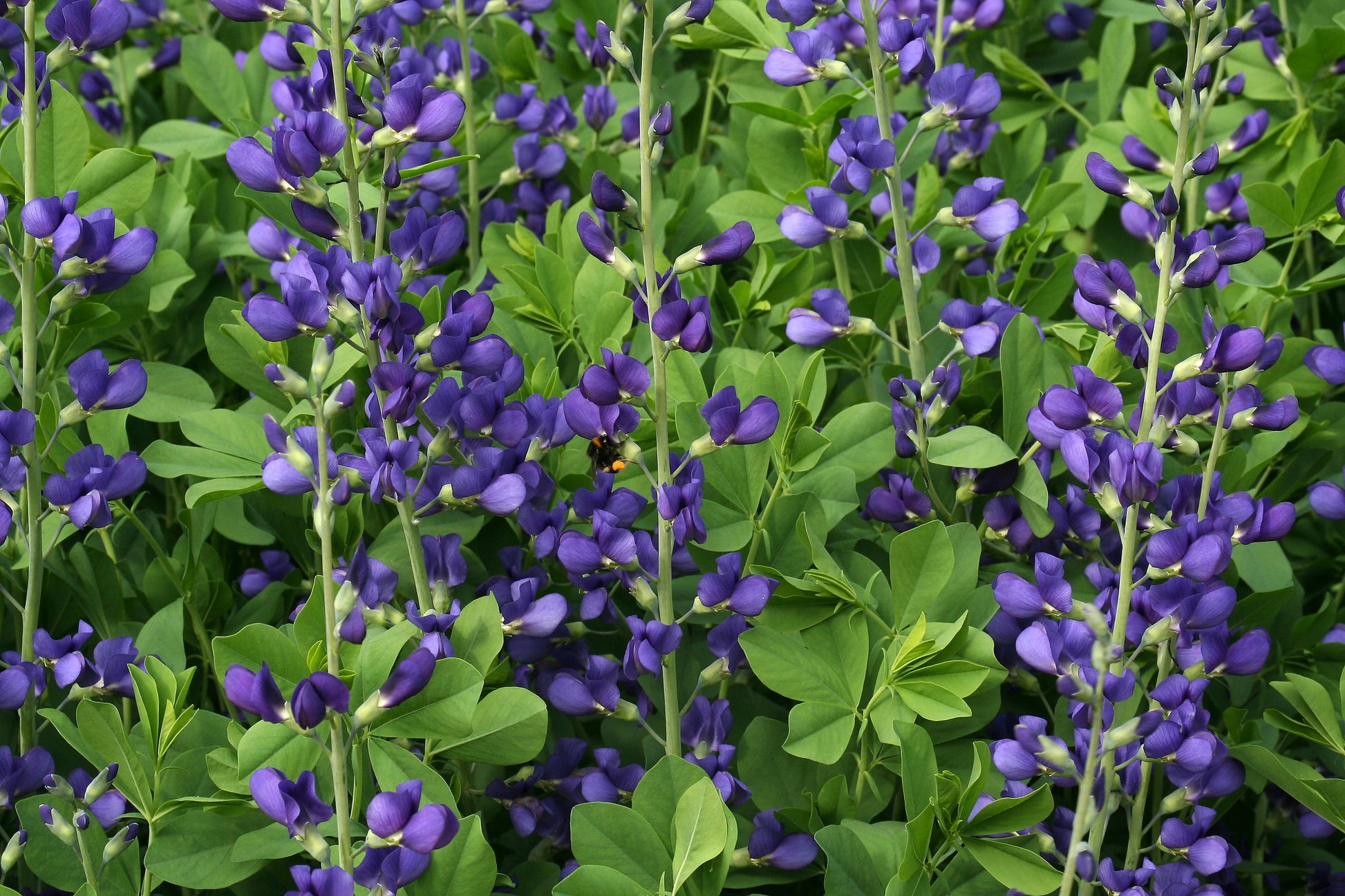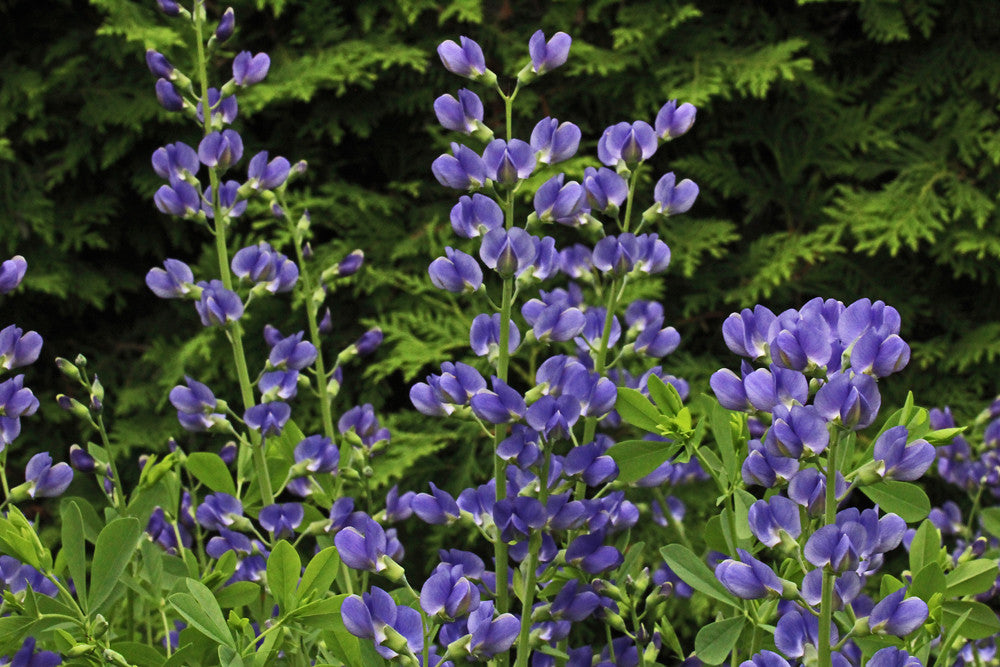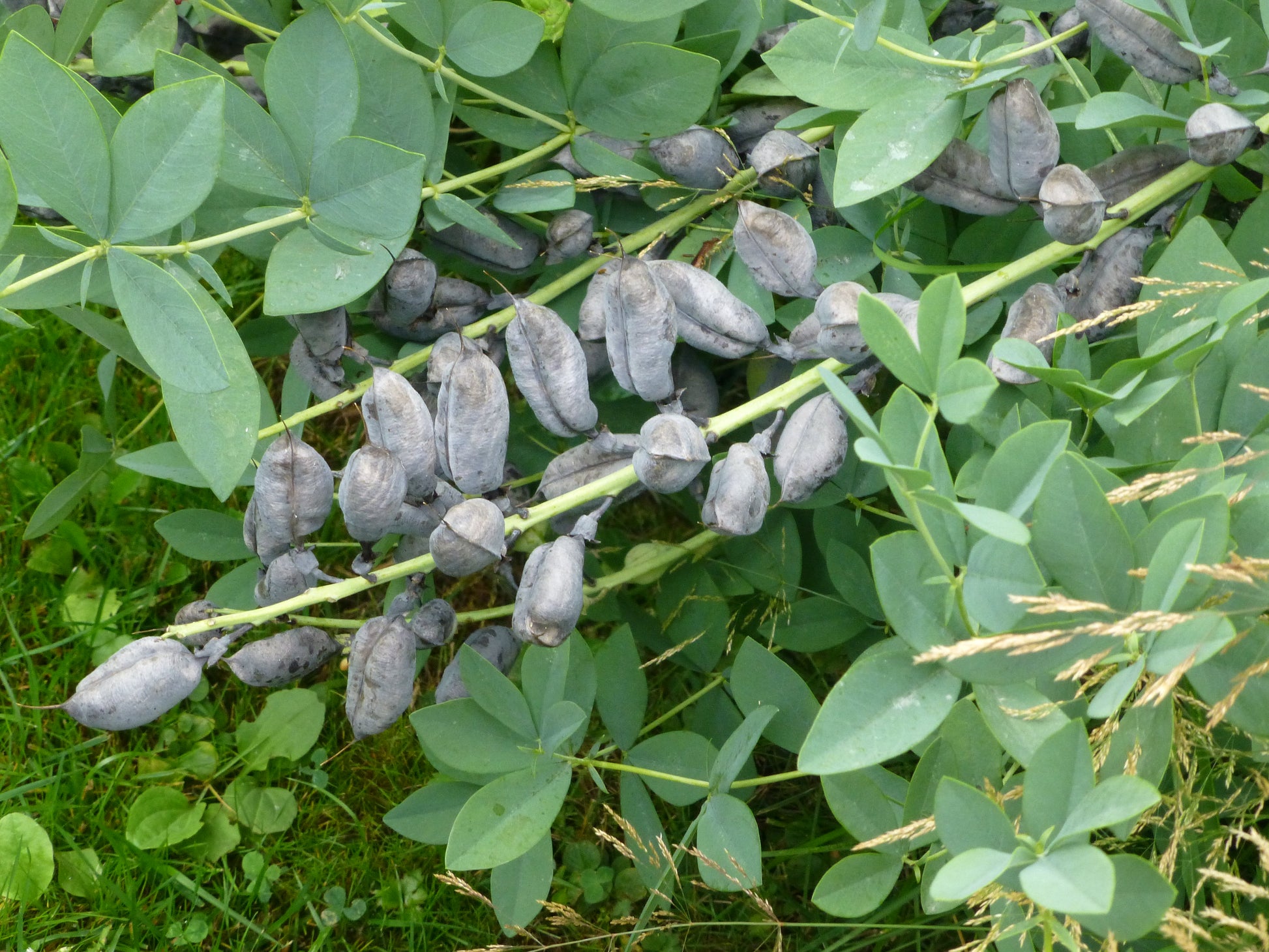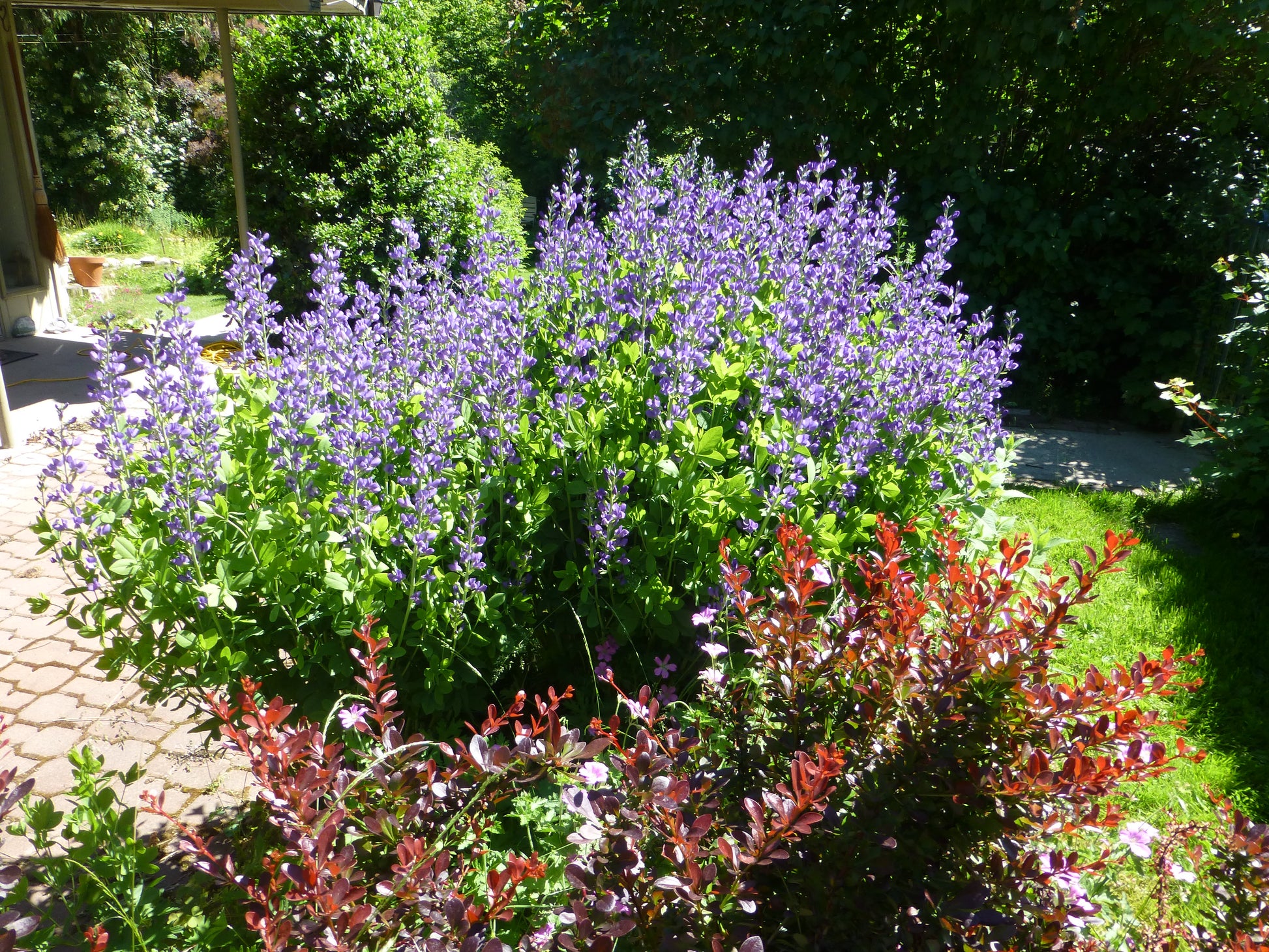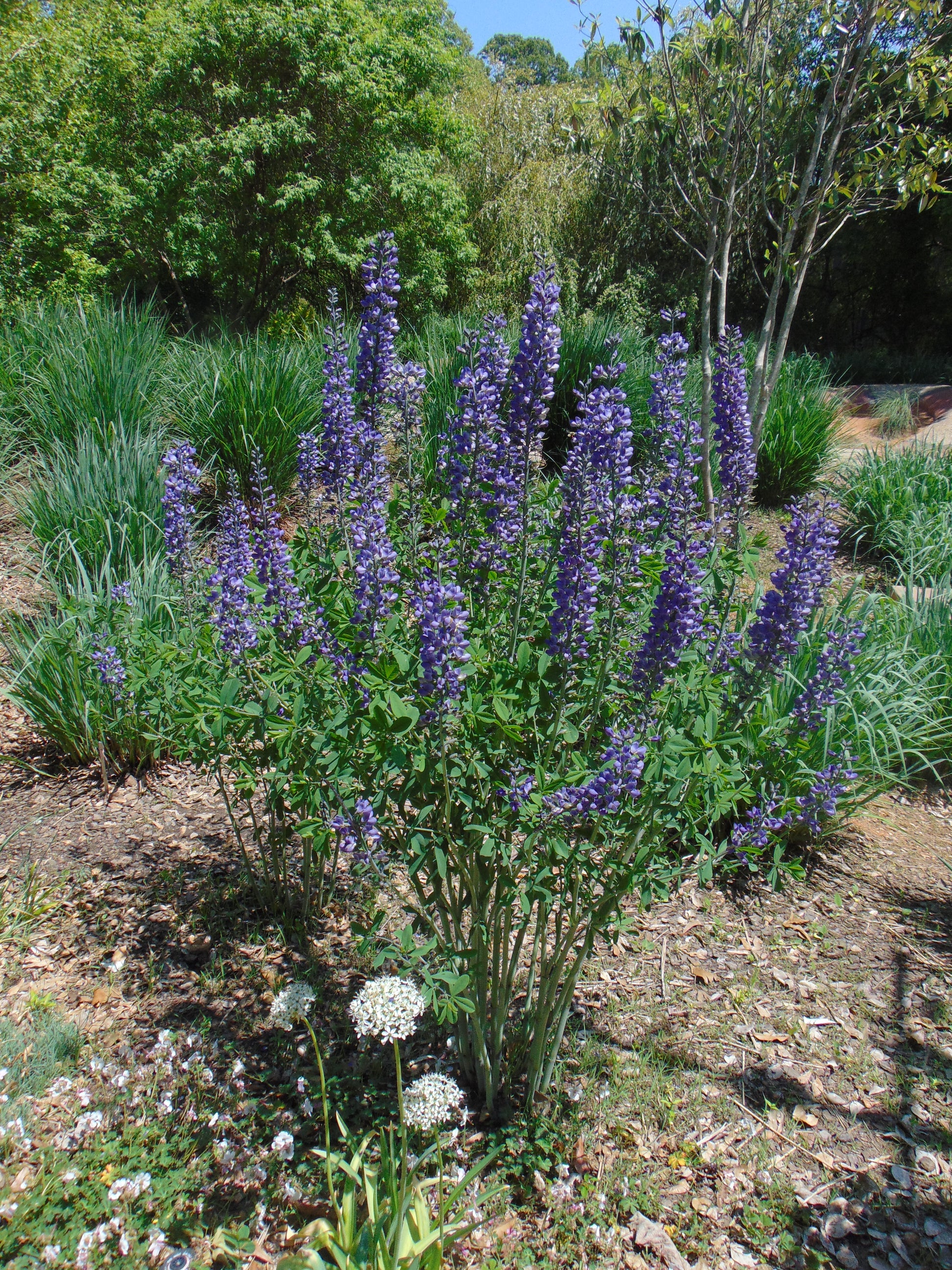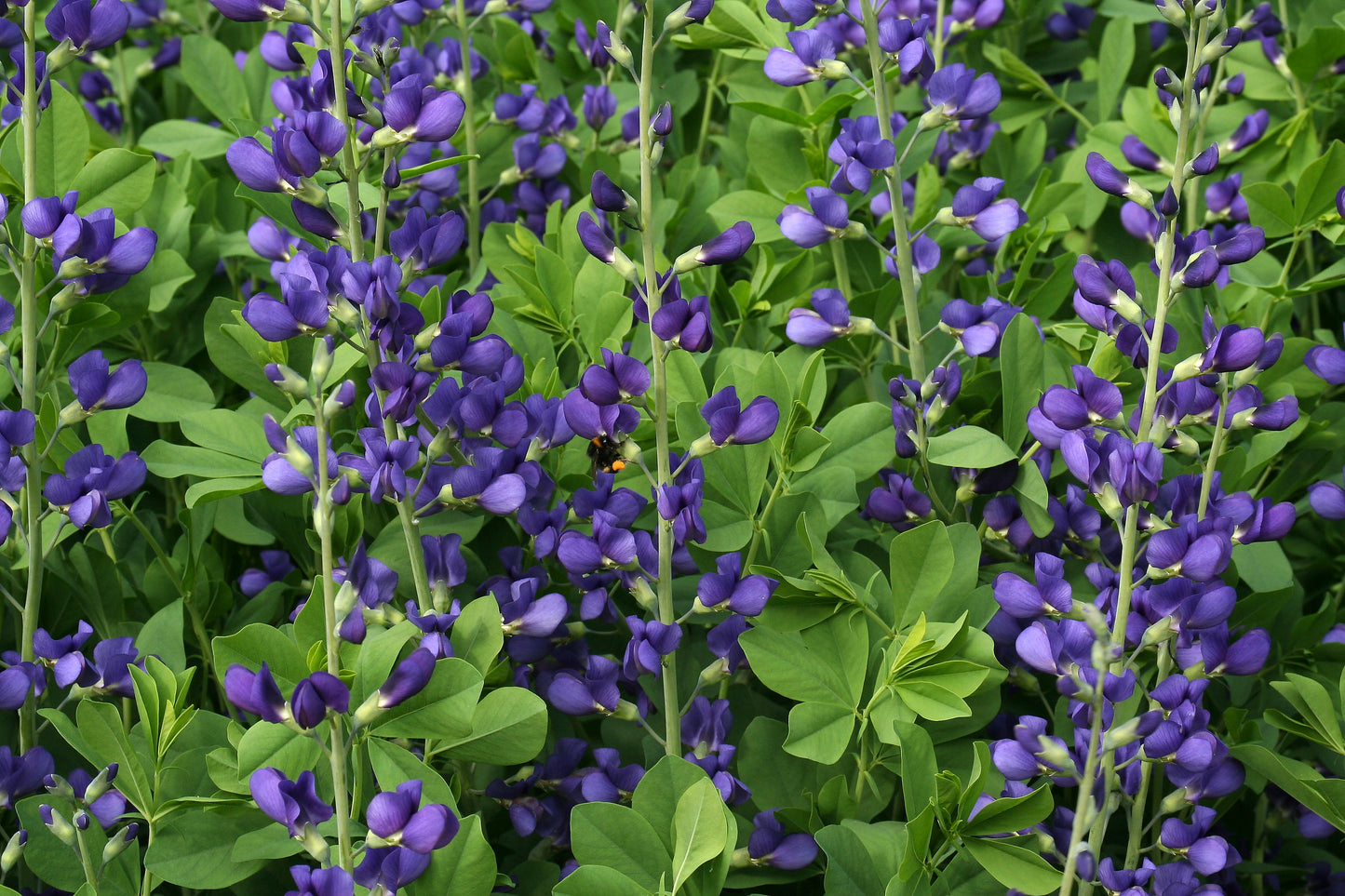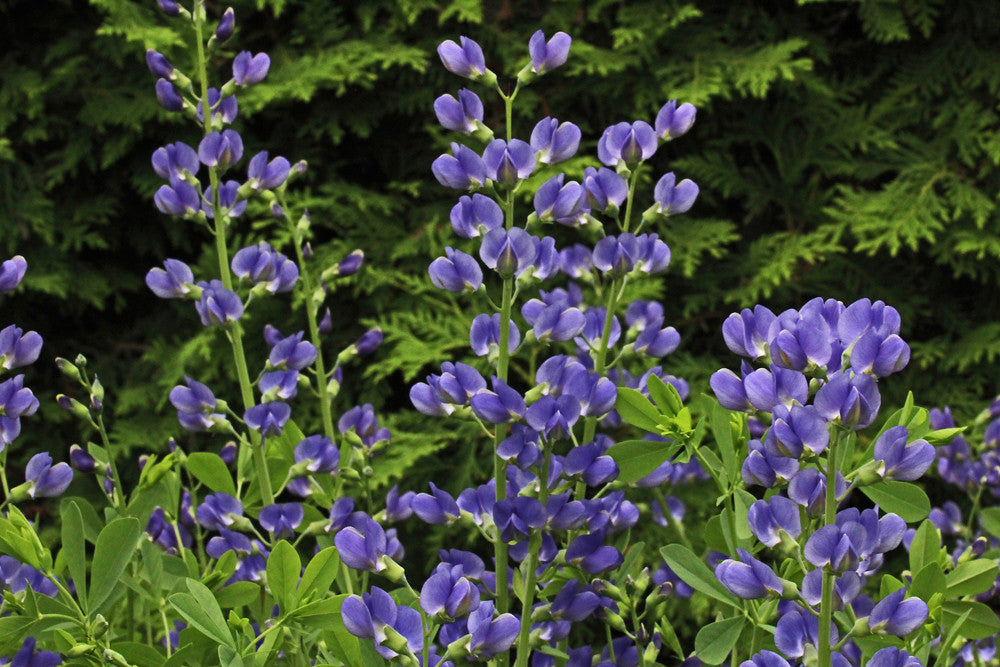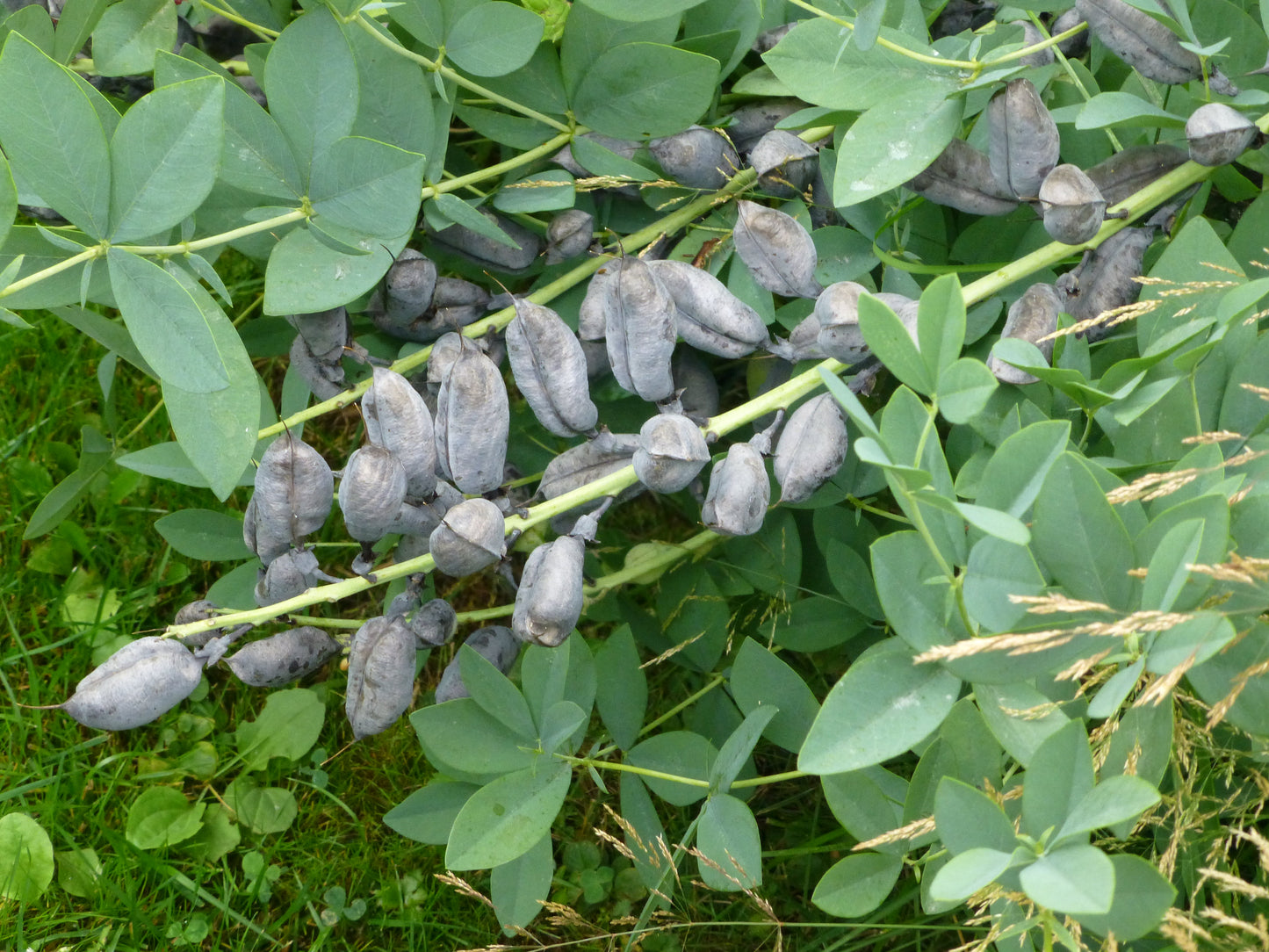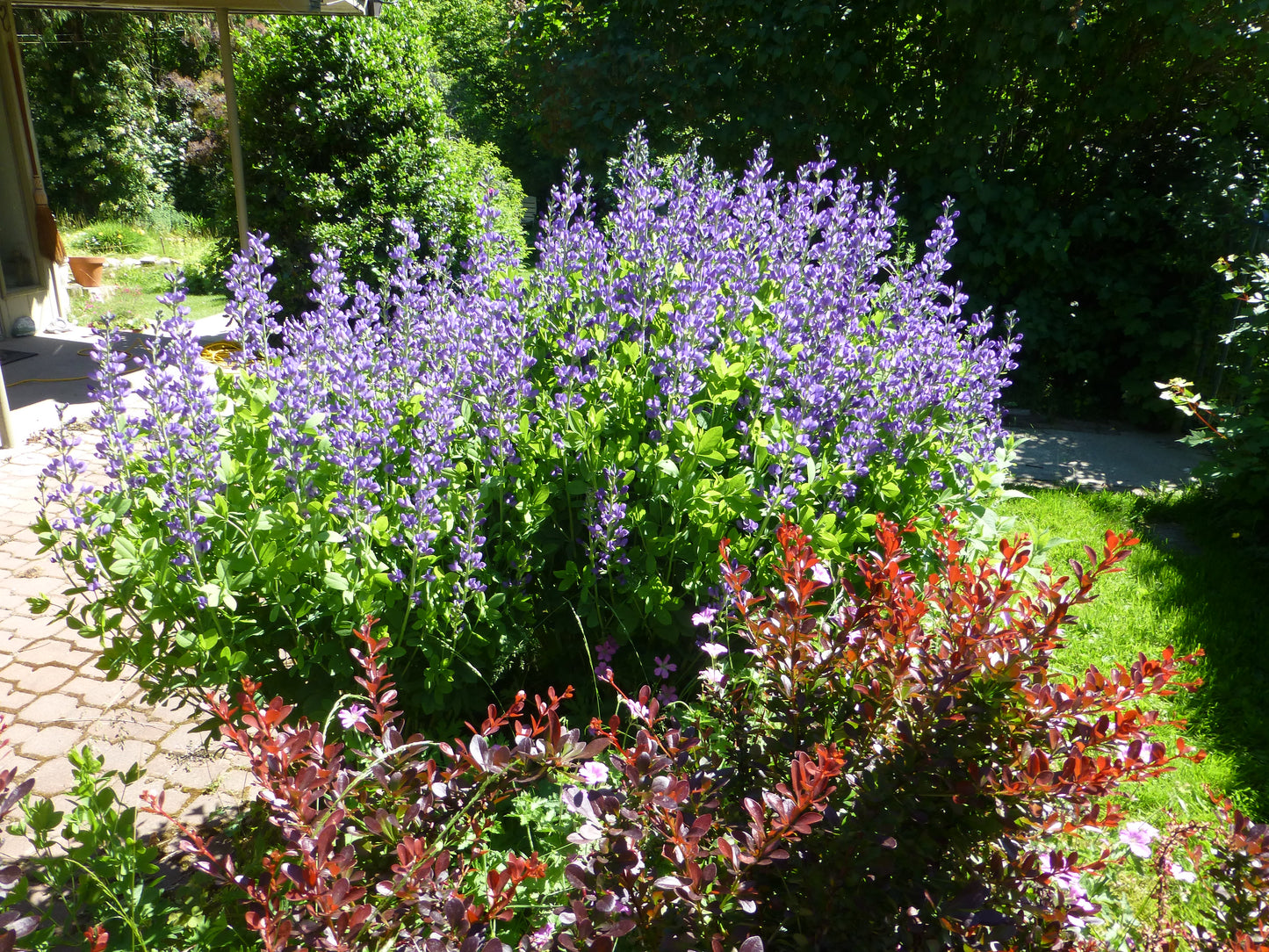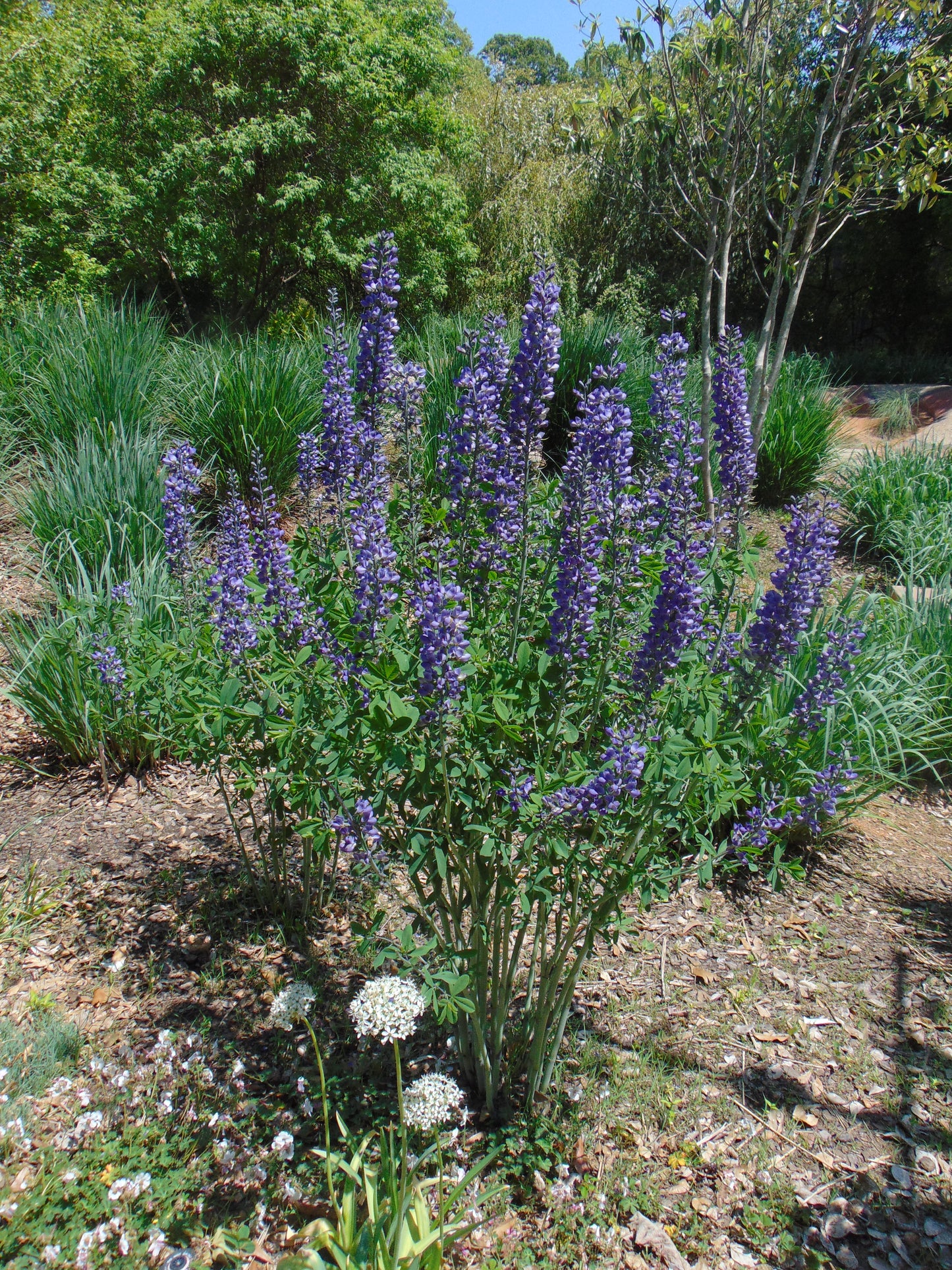Floridaseeds
Blue False Indigo Baptisia australis 100 Seeds
Blue False Indigo Baptisia australis 100 Seeds
Couldn't load pickup availability
Baptisia australis, commonly called blue false indigo, is an upright perennial which typically grows 3-4' tall and occurs in rich woods, thickets and along streambanks from Pennsylvania south to North Carolina and Tennessee. It features purple, lupine-like flowers in erect racemes (to 12") atop flower spikes extending well above a foliage mound of clover-like, trifoliate, bluish-green leaves (leaflets to 2" long). Blooms in spring. Flowers give way to inflated seed pods (to 2.5" long) which turn charcoal black when ripe and have considerable ornamental interest. Seeds rattle around in the blackened pods which were once popularly used by children as rattles. Stems with seed pods are valued additions to dried flower arrangements. Easily grown in average, dry to medium, well-drained soil in full sun to part shade. Best in full sun. Tolerates drought and poor soils. The common name of false indigo refers to the use of certain native baptisias by early American colonists as a substitute, albeit inferior, for true indigo (genus Indigofera) in making dyes. Borders, cottage gardens, prairies, meadows and native plant gardens. Effective in naturalized settings. Best as a specimen or in small groups. Hardy in zones 3-9.
Growing Instructions for the Blue False Indigo
The seeds have a period of dormancy. They can be planted outdoors in the fall or winter for spring germination or they can be cold stratified to simulate winter conditions and to break their dormancy at any time of the year. 1. Scarify the seeds by nicking or sanding the seed coat. 2. Soak the seed in water for several hours. 3. Place the seeds in a plastic bag and seal it. Store the bag in a refrigerator for 6-12 weeks. 4. Fill a pot with potting soil. Use a pot that has drainage holes in the base. 5. Sow the seeds on the soil and cover them with a layer of soil ¼ of an inch thick. 6. Water the container and leave it to drain. 7. Put the pot in a warm, sunny area. 8. Water the pot regularly so that the soil is moist but not wet. 9. The seedlings can be transplanted when they are a few inches tall.

